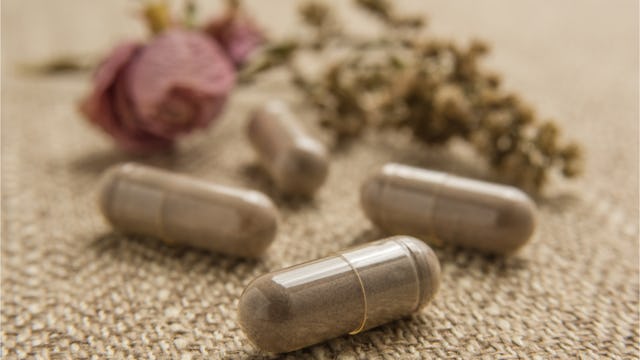Baby Born Healthy Contracts Strep Infection After Mom Consumes Placenta Pills

Mom ingesting placenta pills passes infection to newborn through breastfeeding
Mothers of newborn babies should not ingest their placenta, the Centers for Disease Control and Prevention warned this week. The recommendation came after a baby born healthy in September contracted B Streptococcus agalactiae (GBS) bacteremia, a deadly blood infection — not once, but twice – after its mother ingested placenta pills.
The practice of consuming placenta after birth has gained popularity in recent years after being promoted by parenting blogs and celebrities like Alicia Silverstone and Kim Kardashian (well, if they’re doing it), who believe ingesting placenta can help with everything from postpartum depression, to increased milk production, and higher energy levels.
Except there isn’t any actual evidence to support those alleged benefits.
According to the Mayo Clinic, “Supporters point to research that suggests benefits for postpartum women. But these studies tend to lack in convincing evidence. They focus on animal research and anecdotal experiences or they’re poorly designed. To date, there is no reliable research on humans that supports the benefits of placentophagy.”
The baby affected in the CDC study was admitted to the NICU and treated with an 11-day course of antibiotics, but contracted the infection a second time after returning home and breastfeeding from her mother who was ingesting pills with her dehydrated placenta inside.
“Three days after the infant’s birth, the mother had received the dehydrated, encapsulated placenta and began ingesting two capsules three times daily,” the CDC stated. CDC researchers who examined the placenta pills discovered that they were full of GBS, and instructed the mother to discontinue her use of the pills.
As soon as the woman stopped, her baby was given another round of antibiotics and recovered.
One of the risks facing mothers, according to the CDC, is that no standards exist for processing placenta for consumption. “The placenta encapsulation process does not per se eradicate infectious pathogens; thus, placenta capsule ingestion should be avoided,” the CDC states.
The mother highlighted by the CDC study is one example, yes, but it is a convincing one. GBS is “commonly found in and on adults, but it usually doesn’t cause infections,” The Washington Post reports. “In newborns with undeveloped immune responses, however, it can wreak havoc.”